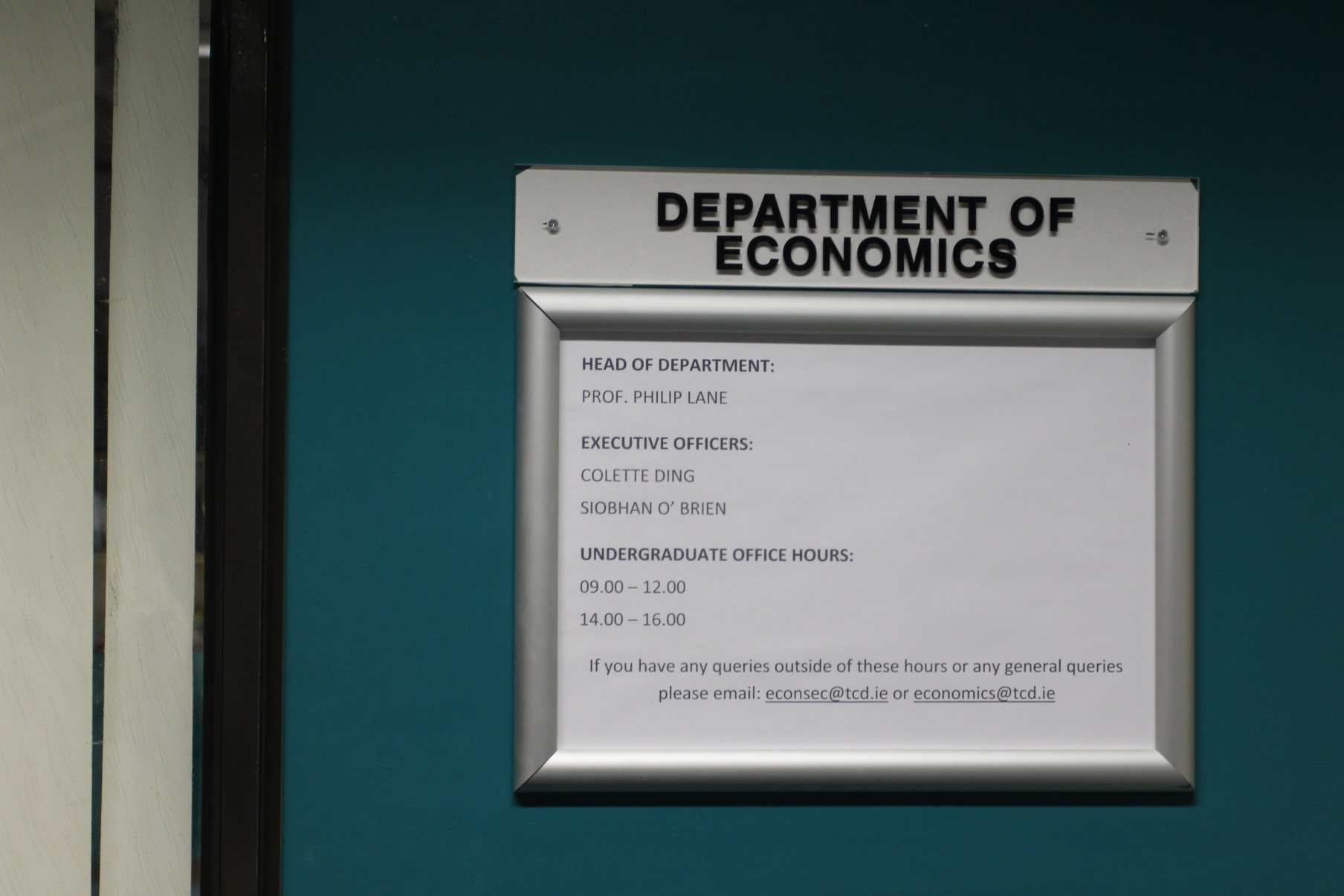
Jonathan McKeon , one of the group’s co-founders, opened the meeting by explaining that the purpose of the gathering was to outline the views of the members of STEP as well as where they hope to take the group from here.
Kevin Threadgold, another co-founder, then read out a statement with the intention of “setting the record straight” about the aims of the new initiative. “As far as I’m concerned, this is certainly not about any kind of hostile vendetta against the Department of Economics,” he said. “Antagonism will do nobody any favours. What we want and need is an open and honest discussion based on mutual trust and respect.”
He said that he understood if some readers of the group’s manifesto, published in Trinity News last month, were under the impression that STEP was attacking the Department of Economics.
“That’s not what we’re about,” he said. “There is a difference between constructive criticism and vindictive attack.”
According to Threadgold, the article was not intended “to set out our manifesto in exact detail,” but rather “it was to give a general sense of the ethos driving us, to provoke a discussion and to get people thinking and talking.”
He argued that, while the group recognises that there are flaws in some heterodox economic theories, not studying or ignoring them “is definitely more harmful than taking a look” at them, even if only briefly.
Outlining its broader purpose, Threadgold said that he hopes STEP will function as a student society, based on a similar model to the Metaphysical Society, where students, staff and guest speakers will be invited to present papers with a specific emphasis on economics.
“Whether the Department completely ignores us or takes some of our ideas on board or embraces us with open arms,” Threadgold said, the society will continue to exist “as a vehicle for economics students to share ideas, challenge and support each other and provoke critical thought.”
At the time of the meeting, STEP had yet to receive an official response to their manifesto from the Department of Economics. However, they said that they had approached by several of its staff members with ideas and had been told about the Department’s financial constraints.
“It’s been mentioned a couple of times that as economists we should know that we’re in the middle of a recession,” McKeon said, “and as such we’re faced with a staff with a very limited budget and with people retiring” limiting the range of subjects that can be taught.
“We’re all very conscious of the resource constraints on the department and we’re trying not to have unrealistic expectations,” Threadgold added. “If we want to achieve anything we can’t be demanding more than the department can give us.”
Collaboration with other departments in the college was mentioned at the meeting as a means of increasing the diversity of modules offered to economics students without putting too much pressure on the department’s resources.
McKeon, Threadgold and Robert Wade, the group’s three co-founders, who are all fourth-year PPES students, said that they had been expecting “a backlash” and “a big delegation of economics professors” to attend the meeting and that they were surprised that this was not the case.
However, Norah Campbell, a lecturer from the School of Business, and PJ Drudy, a professor emeritus of the Department of Economics, both attended and voiced their support for the initiative.
Photo: Huda Awan






